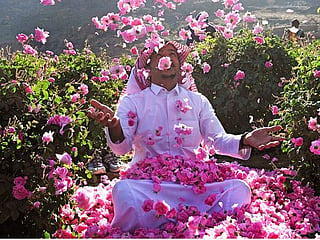Saudi businesses must achieve progressive goals
Shura council discussing decision that obliges facilities to close during prayers

Also In This Package
Two weeks ago, there was great expectation among the major cities of Saudi Arabia that the Saudi legislative council, known as the Shoura, was finally going to put the issue of closure of establishments during prayers to rest.
A recommendation submitted by some Shoura members to do away with closures and not to compel commercial establishments and shops to close during prayer times except for Friday prayers was to be discussed and voted upon. If it was passed then it would be submitted to the Saudi cabinet for approval and implemented as the law of the land.
Many who were waiting in anticipation for this landmark ruling -- that has a big impact on the daily lives of citizens and residents of this country – may have to wait longer as the Shoura Council decided to postpone the discussion and subsequent voting on this matter.
Saudi Arabia is to my knowledge the only Islamic country in the world that has the practice of shutting down businesses and commercial establishments entirely during prayer times, sometimes to the tune of forty-five minutes. With the obligatory prayers numbering five daily and scattered throughout the day and night, that accounts for a lot of time when those in need are met with a ‘closed for prayers’ sign hanging outside the establishment.
Strict compliance
It is a practice that took its true form during the ‘80s of the previous century when shop closure was strictly enforced by the religious police who would make their rounds and ensure strict compliance. Those who were found violating this rule would be immediately rounded up.
With this continuing practice, there is no uniform standard when it comes to closing up at these times. Nor do consumers know whether they are to be locked in or shooed out. Some store and restaurant managers are quick to point out that they have to vacate the premises and shutter up their businesses at these times.
The ironic thing is that people who are sometimes booted out of these places end up loitering on the sidewalks in front of the stores impatiently waiting for them to reopen. Even the sales attendants congregate over in groups for their break of coffee and cigarettes. And all this before prayers have started.
Sign of the times
But the times have changed. With King Salman and Crown Prince Mohammad Bin Salman, the kingdom has taken tremendous leaps forward in unshackling some of the binds of traditional dogma. This tradition has no religious backing. Vision 2030 that relies on the kingdom’s engine moving quickly and forward cannot in reality put up with business closures scattered throughout the day. It makes business investment too risky to contemplate.
The argument here is not that people should pray or not. No indeed, it is not. Prayers are obligatory upon the faithful. The argument here is not to let shops and establishment be forcibly closed. No one is advocating that the staff be prevented from offering their prayers, nor should they be discouraged from doing so.
They should continue to offer prayers but it can be done by staggering the number of personnel who can take time off for prayers just as it is done at the major airports in the country where tarmac staff have to pray in shifts and yet keep flight operations in full flow.
Let the faithful conduct their religious rituals as is done in all other Islamic countries. And let us be aware that times have changed. The Shoura Council, which consists of eminent people, obviously is aware of expectations of the people.
Needless to add, business owners and managers who use the excuse of prayers to allow their staff to take breaks instead of allocating regulation breaks during the work shift have to be monitored and taken to task.
To hold this country hostage by locking it up several times a day and for an undetermined time causes great inconvenience to the masses. The Shoura Council must factor that in while making the decision. The Kingdom is moving forward towards the progressive goals laid down by the country’s wise leadership.
We must all facilitate this move forward. Failure to do that would be of great disservice to the people of Saudi Arabia.
Tariq A. Al Maeena is a Saudi sociopolitical commentator. He lives in Jeddah, Saudi Arabia. Twitter: @talmaeena









